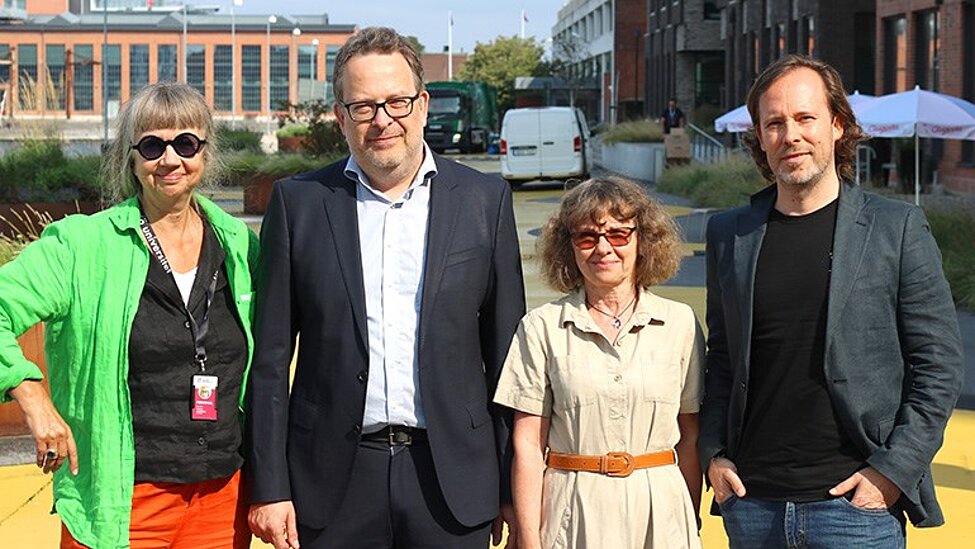New research centre launched – result of Danish–Swedish collaboration

RESEARCH. The recently launched Centre for Modern European Studies (CEMES) is a Scandinavian multidisciplinary research network dedicated to advancing academic inquiry into research and education on modern Europe – including its historical development since the French and industrial revolutions.
The research centre aims to explore the political, cultural and intellectual transformation of Europe in the last centuries, as well Europe’s relations with other regions in the world. CEMES will actively coordinate and develop research and education on European issues based on a broad interdisciplinary and collaborative approach. It will also provide platforms for researchers to develop and discuss their research on European matters, including history, culture, media, politics, international relations, religions, philosophy, arts and literature, among others areas.
"Our ambition today is to bring together theology with humanities and social sciences, to help us address some of the questions of contemporary Europe," says Morten Rasmussen, chair of CEMES from the University of Copenhagen.
"We want to nurture originality and cultivate ideas from below, and assist in organising seminars. We will also reserve funds for a few top-down activities. There will be series of events, and researchers across all the three universities will find a common forum for relevant discussions and research projects. The goal is also to be able to contribute to public debate."
CEMES brings researchers together from the three partner universities: University of Copenhagen, Malmö University and Lund University. The universities already have several exchanges and collaboration projects, and the ambition behind CEMES is to operate from the bottom up to cultivate and nurture ideas from other European universities, utilising a network of relevant academic scholars.
CEMES aims to:
- develop interdisciplinary studies in matters and issues related to Europe across and within the partner universities
- support and facilitate external funding for individual and collective research projects on European issues
- initiate and foster research-based activities for students
- develop collaboration with other centres for European studies in the Nordic region and beyond
- create international networks on European matters
- gather expertise within the humanities on European issues, make research accessible and disseminate it to a broader audience.
"Morten Rasmussen and I discussed this initiative when I got employed at Malmö University two years ago, having previously worked at the University of Copenhagen. The initiative signifies a leap in having regular interaction and exchanges across Öresund," says Dino Knudsen, vice-chair of CEMES.
"It’s still pretty open so we haven’t decided on what specific topic to focus on yet."
"We wanted to establish a common platform and noticed already how the wheels on both sides started to turn," says Barbara Törnquist-Plewa, vice-chair of CEMES from Lund University.
"We want to capture good ideas from all disciplines, but we want to develop a research platform with a focus on the 20th and 21st centuries Europe. The deans of the faculties of Humanities at the University of Copenhagen and Lund have long been discussing the possible venues for closer cooperation, so they welcomed this initiative, as well as the idea that Malmö will join the partnership."
"This new Öresund network is a clear signal that humanities, social sciences and interdisciplinary work are strong and thriving," says Annika Olsson, dean of the Faculty of Culture and Society at Malmö University.
"The knowledge we have is exactly what contemporary society needs."
Text: Johan Portland
More about CEMES
CEMES spans the three universities in the Öresund area. It is steered by researchers from the Joint Faculties of Humanities and Theology (Lund University), the Faculty of Culture and Society (Malmö University) and the Faculties of Humanities and Theology (University of Copenhagen). The CEMES Secretary is located at the Saxo Institute at the University of Copenhagen.
For more information, please contact
Morten Rasmussen, Copenhagen University, Cemes chair
Barbara Törnquist-Plewa, Lund University, CEMES vice-chair
Dino Knudsen, Malmö University, CEMES vice-chair
